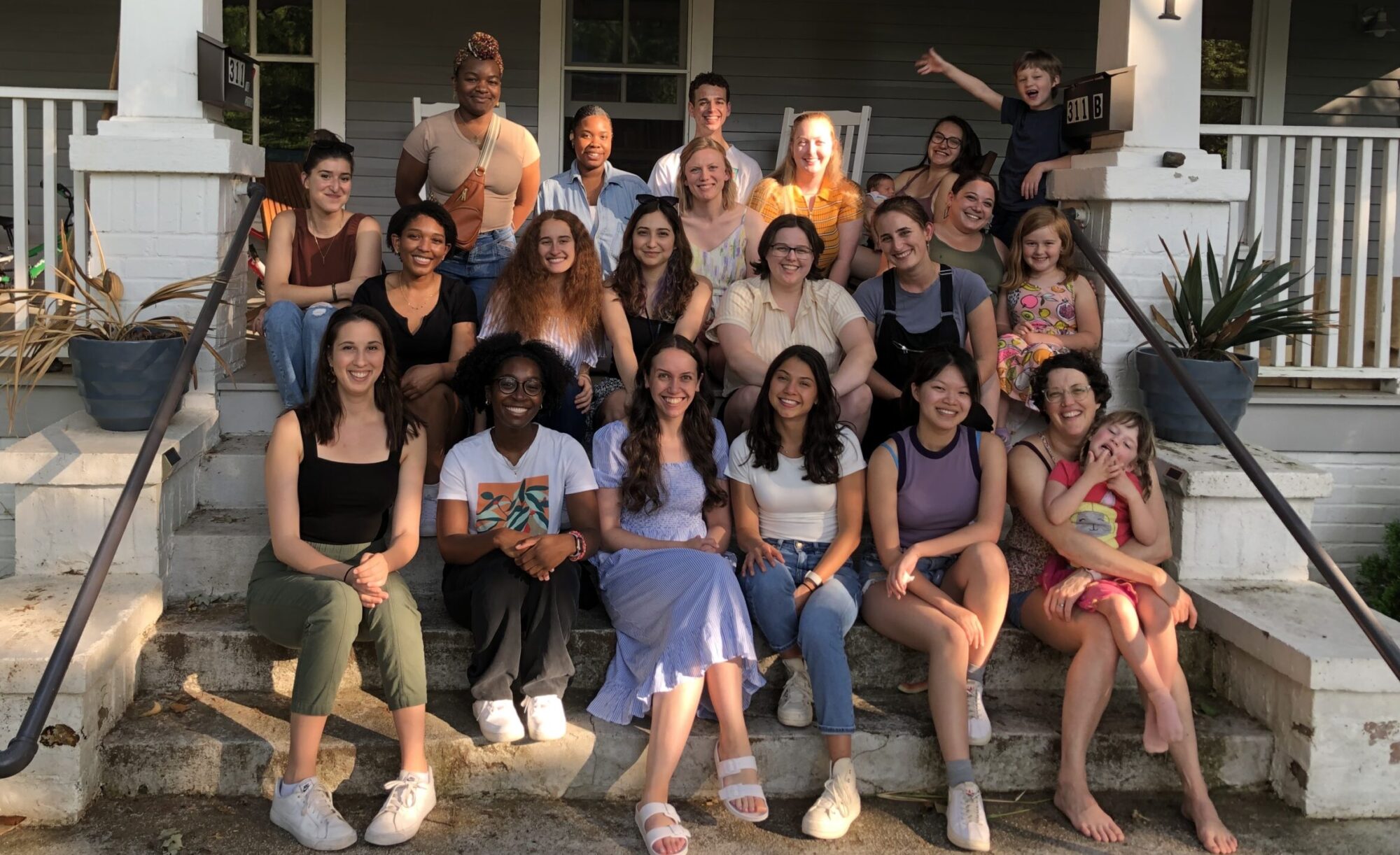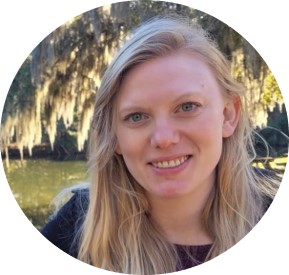Post-Docs:
Dr. Ilana Berman
isberman@email.unc.edu
Ilana S. Berman, PhD earned her degree in clinical psychology from the University of Arkansas in 2020 and completed her pre-doctoral clinical psychology internship at Duke University Medical Center with a concentration in child trauma. She is a postdoctoral fellow in the CIRCLE Lab with Dr. Margaret Sheridan and the Brain and Early Experiences (BEE) Lab with Dr. Cathi Propper. Dr. Berman’s research focuses on intergenerational transmission of the impact of potentially traumatic experiences, specifically within caregiver-child relationships and broader family systems. In addition to improving cognitive and socioemotional outcomes for youth and families affected by trauma, she is also invested in dissemination, implementation, and program evaluation to improve delivery of evidence-based and trauma-informed services to increase access to care for traditionally under-served populations. (Pronouns: she/her/hers)
Dr. Berman’s Google Scholar Page
Dr. Berman’s Research Gate Page
Dr. Megan Davis
davismeg@unc.edu
Megan Davis, PhD, received her doctorate in clinical and community psychology from the University of Illinois at Urbana-Champaign in 2021 and completed her predoctoral clinical psychology internship at the Charleston Consortium. Dr. Davis’ research has two primary aims: (1) to explore why certain youth are at greater risk for psychopathology based on their early experiences and neural and psychological reactivity to the environment and (2) to identify how factors such as cognitive control and family and peer support might amplify or attenuate risk for psychopathology in youth. The ultimate goal of this research is to better identify targets for interventions that promote healthy youth development. (Pronouns: she/her/hers)
Dr. Davis’s Google Scholar Page
Dr. Davis’s Research Gate Page
Dr. Anna Kawennison Fetter
afetter@unc.edu
Anna Kawennison Fetter, PhD (she/her/hers) received her degree in Counseling Psychology from the University of Wisconsin – Madison and received a Master’s in Education in Human Development and Psychology from Harvard University. Dr. Fetter completed her doctoral internship at the University at Albany’s Counseling and Psychological Services. Dr. Fetter is a first-year postdoctoral fellow in the Carolina Postdoctoral Program for Faculty Diversity. Dr. Fetter’s research focuses on the longitudinal development of resilience among Indigenous and marginalized youth with a particular focus on educational experiences as well as cultural and identity-based stressors and coping. In partnership with community stakeholders, Dr. Fetter aims to ultimately inform educational policy and practice to best support Indigenous youth resilience. (Pronouns: she/her/hers)
Dr. Kawennison Fetter’s Google Scholar Page
Dr. Kawennison Fetter’s Research Gate Page
Faculty:
Dr. Andrea Pelletier-Baldelli
andrea_baldelli@med.unc.edu
Andrea Pelletier-Baldelli received her PhD in Clinical Psychology from the University of Colorado Boulder with an additional focus in neuroscience. Andrea is dedicated to understanding social and neurobiological risk factors for severe mental illness in adolescents and has over a decade of experience working with youth in this area.
Andrea’s program of research investigates social motivation during adolescence and how different social behaviors can increase risk for challenges to mental health. In her work, she uses functional MRI to study how the brain influences (and is influenced by) these various social processes to identify how mental illness onsets and develops over time. Andrea’s research has been funded by the National Institute of Mental Health with her most recent award focused on identifying how childhood adversity and disruptions to social motivation may form a pathway to risk for suicide. With this work, Andrea hopes that knowledge around risk and illness onset will be enhanced and promote early intervention for children and adolescents.
Andrea completed her clinical internship at Massachusetts General Hospital/Harvard Medical School and two postdoctoral fellowships through UNC Psychiatry and UNC Psychology and Neuroscience. Outside of her clinical research career, Andrea enjoys being outdoors (ideally hiking) with her family and fluffy golden retriever. (Pronouns: she/her/hers)





